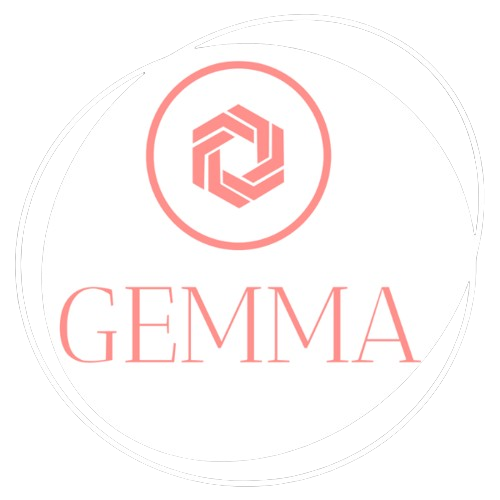WP4 – Development of GEMMA Serious Game
⇒ Download the complete report
⇒ Download the Trial results report
PARTNERS’ CONTRIBUTION
In Work Package 4, all project partners collaborated closely to design, develop, and validate the GEMMA Serious Game, which represents the project’s main innovative output. The technical development of the game was carried out by Serious Game Factory, which transformed the pedagogical framework and scenarios into an interactive, user-friendly digital application.
The partner universities contributed through content co-design, scenario creation, and testing activities. Each partner organised co-design events in their respective countries (Italy, Spain, Poland, Greece, and Finland), engaging researchers, academic staff, and PhD candidates to ensure that the game reflected authentic workplace situations and challenges related to well-being, entrepreneurship, and digital competences.
Partners also supported translation and localization of the content into six languages and participated in pilot testing to evaluate usability and pedagogical effectiveness. Feedback from these trials was integrated into the final version of the game.
Overall, the collaboration between Serious Game Factory and the consortium ensured the development of a high-quality, multilingual, and pedagogically grounded serious game fully aligned with the GEMMA project’s objectives.
MAJOR DIFFERENCES WITH PLANNED ACTIVITIES
There were no major differences between the planned and implemented activities within Work Package 4. All tasks foreseen in the original work plan—such as the design of the game structure and mechanics, the organisation of co-design events in partner countries, the translation of scenarios, and the final implementation of the GEMMA Serious Game—were successfully completed as planned. The activities were carried out according to the established timeline and methodology, ensuring full alignment with the objectives described in the project proposal.
QUALITY OF RESULT
The results of Work Package 4 were achieved through a collaborative and iterative development process that combined pedagogical expertise from the university partners with the technical know-how of Serious Game Factory, the organisation responsible for the game’s design and implementation. Partners co-created realistic workplace scenarios, tested prototypes, and provided feedback for continuous improvement.
These results directly supported the main objectives of the GEMMA project—to enhance digital, entrepreneurial, and well-being competences in higher education—by translating theoretical concepts into interactive, experiential learning. The serious game allowed users to practice decision-making, problem-solving, and emotional management in simulated academic contexts, reinforcing the competences promoted by the MOOC.
The quality of the results was confirmed through pilot testing in partner countries and by user satisfaction surveys administered via Google Forms, which reported high engagement, usability, and perceived learning value.
TARGET GROUPS
The target groups for the activities and results of Work Package 4 were university staff, researchers, PhD candidates, and students interested in developing transversal competences through experiential learning. The GEMMA Serious Game was designed to simulate real-life academic and professional situations related to digital transformation, entrepreneurship, and well-being at work, allowing users to learn by doing in a safe and engaging environment.
For academic staff and researchers, the game provided a tool to improve decision-making, communication, and self-management skills in complex, digitalised workplaces. For PhD candidates and students, it offered an innovative and motivating learning experience, fostering entrepreneurial thinking, emotional regulation, and adaptability.
By combining gameplay with pedagogical design, the serious game made abstract competences tangible and applicable to everyday academic life. This approach proved particularly beneficial in increasing motivation, engagement, and competence acquisition, fully supporting GEMMA’s overall objective of empowering higher education professionals through digital and well-being-oriented learning.
PROGRESS, QUALITY AND ACHIEVEMENT OF RESULT
The level of achievement of both qualitative and quantitative indicators in Work Package 4 was fully satisfactory, with all planned results completed according to the project’s objectives. Quantitative indicators included the number of co-design events held across the five partner countries, the number of scenarios developed, and the six language versions implemented. All these targets were successfully met, and the serious game was released as planned.
Qualitative indicators—such as user engagement, usability, and learning relevance—were evaluated through pilot testing and user satisfaction surveys administered via Google Forms. The feedback confirmed that the game was perceived as highly engaging, pedagogically valuable, and easy to use.
The progress and quality of the work were continuously monitored through coordination meetings, internal reviews, and testing phases shared among partners. This process ensured that the final product aligned with the educational frameworks (DigComp, EntreComp, LifeComp) and maintained high technical and pedagogical standards.
CONCLUSION
The implementation of Work Package 4 was highly satisfactory. The consortium successfully developed the GEMMA Serious Game, ensuring strong collaboration between Serious Game Factory and all partners for content co-design, translation, and pilot testing. The final product met all technical and pedagogical expectations, offering an engaging and user-friendly learning experience aligned with the project’s goals.
The only minor challenge concerned the coordination of technical adjustments and linguistic adaptations across partner countries, which required additional effort. However, these were effectively managed, and the serious game achieved excellent results and user feedback, fully validating its quality and educational impact.
